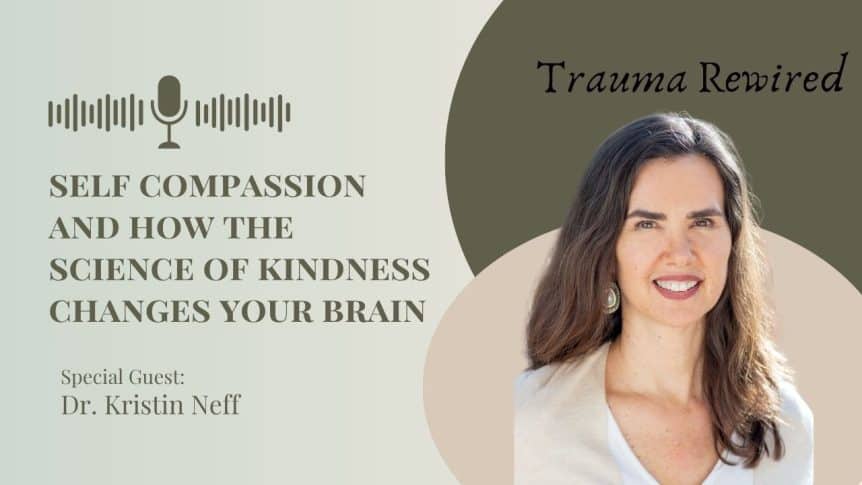
In this conversation with Dr. Kristin Neff, Associate Professor of Educational Psychology at the University of Texas and the pioneering researcher who introduced self-compassion into modern psychology, we explore why self-esteem is a fair-weather friend while self-compassion provides steady support through challenge and failure.
Dr. Neff shares how her early mindfulness practice reshaped her own relationship with shame, and how research now shows that self-criticism keeps the body’s threat system active while compassion engages the brain’s caregiving network—reducing cortisol, inflammation, and emotional reactivity.
Together we examine the three pillars of self-compassion—mindfulness, common humanity, and kindness—and how these transform both personal healing and co-regulation. You’ll learn about the concept of backdraft (why opening to care can surface old pain), the difference between tender and fierce compassion, and why caring for yourself actually strengthens motivation and performance.
If you’ve ever felt that being softer might make you weaker, this episode offers a science-based reframe: self-compassion is strength regulated.
Timestamps:
- 00:00 Why self-compassion matters in trauma healing
- 05:10 Self-compassion vs. self-esteem: stable worth vs. comparison
- 12:30 Three components: mindfulness, common humanity, kindness
- 20:45 Threat vs. care systems; shame, rumination, regulation
- 29:00 “Backdraft” and pacing: minimum-effective-dose practices
- 37:20 Tender & fierce self-compassion: soothing + boundaries
- 46:15 Motivation myths: keeping your edge without self-attack
- 55:00 Post-traumatic growth, wisdom, and everyday practices
Key Takeaways:
- Self-esteem is contingent; self-compassion is unconditional. Worth isn’t earned—it’s acknowledged, especially when things go wrong.
- Three pillars: notice suffering (mindfulness), remember you’re not alone (common humanity), respond with support (kindness).
- Threat vs. care: self-criticism can keep the threat system active; compassion practices can engage caregiving circuits and support regulation.
- Expect “backdraft.” Opening to care may surface old pain—go slow, titrate, choose tools that feel safe for your system.
- Compassion supports performance. Less shame → better learning, repair, and values-aligned motivation.
Listen across all podcast platforms
Transcript available on Apple podcast
Resources Mentioned:
- Self-Compassion (book) – Kristin Neff
- Fierce Self-Compassion (book) – Kristin Neff
- Neurosomatic Intelligence Coaching Certification – NeurosomaticIntelligence.com
- BrainBased community – BrainBased.com
Call to Action:
If this episode brought you clarity, comfort, or a deeper understanding of your emotional world, share it with someone who needs to hear it. Don’t forget to subscribe on your favorite audio platform or hit the bell on YouTube so you never miss an episode.
👉 Want to learn how to rewire your nervous system, strengthen emotional regulation, and support others in doing the same? Explore the Neurosomatic Intelligence Certification at NeurosomaticIntelligence.com.
Healing starts with integration—when your brain and body begin working together, real regulation becomes possible.